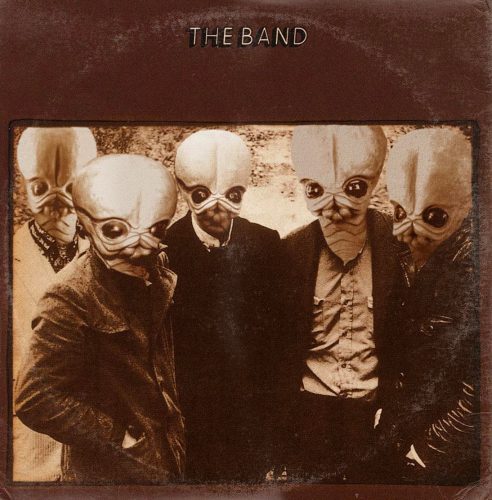
Kudos to the trend buckers out there, the first of whom being the University of Chicago, who sent this letter to their class of 2020 before their arrival on campus. In opposition to the kind of coddling we’ve seen surface over the past couple years in academia, Chicago promises their students that there will be no such thing as trigger warnings in their classrooms. Diversity, if it means anything at all, will be as offensive as it is accepting. Part of the job of the university, they argue, is to level the playing field of discourse—something that a culture of offense prohibits (ht MM).
Our commitment to academic freedom means that we do not support so called ‘trigger warnings,’ we do not cancel invited speakers because their topics might prove controversial, and we do not condone the creation of intellectual ‘safe spaces’ where individuals can retreat from ideas and perspectives at odds with their own.
I think a culture like this one would move several faculty members to Chicago. We have talked a little about the Erika Christakis issue at Yale, the professor who was riddled in controversy for sending out an email arguing that Yalies should wear what they wanted to wear for Halloween.
“Have we lost faith in young people’s capacity—in your capacity—to exercise self-censure, through social norming, and also in your capacity to ignore or reject things that trouble you?” she asked. “What does this debate about Halloween costumes say about our view of young adults, of their strength and judgment? Whose business is it to control the forms of costumes of young people? It’s not mine, I know that.”
The notion of freedom here, as always, is terrifying for a student body enmeshed in a culture of not just political correctness, but right choices. The attempt to protect students from such offense, according to Christakis (and UChicago), is fear-based, and walks a slippery slope toward total censorship. This impulse to protect, as well-intended as it may sometimes be, often produces the opposite result. Of course, at this point, we’re not just talking about college campuses anymore…
Another trend bucked? Smartphones. A Wall Street Journal article covers the small group of teenagers leaning away from social media.
To these teens who opt out, the relentless pursuit of “likes” looks exhausting. “I think it takes too much time and kids get too absorbed,” says Annie Furman, 19, who grew up in the Dallas area and is about to start college in Iowa. “I’d rather see my friends in person than tweet at them. I don’t want to spend all my time on my phone. I want to spend it in the real world.”
 And Alan Jacobs writes about the limits of his dumb phone in an age that only truly wants ephemeral “disconnection.” He bought a (seriously expensive) dumb phone by Punkt, with beautiful Swiss design—which, one could argue, is really just a leg up in smug tech department—that takes him back to the days of T9. And he argues that, much as we wish we weren’t our phones, the demographic who buys this phone also tends to just carry their smartphone in their other pocket.
And Alan Jacobs writes about the limits of his dumb phone in an age that only truly wants ephemeral “disconnection.” He bought a (seriously expensive) dumb phone by Punkt, with beautiful Swiss design—which, one could argue, is really just a leg up in smug tech department—that takes him back to the days of T9. And he argues that, much as we wish we weren’t our phones, the demographic who buys this phone also tends to just carry their smartphone in their other pocket.
But far more interesting than the phone itself is the marketing strategy employed by Punkt to promote it. Both on their website and their Twitter account they relentlessly press the message that to use a Punkt is to “disconnect,” to “detox,” to be “offline.” Well, no. If people can reach me, and I can reach them, by call or text, then I’m not really disconnected, am I? But in a “you are your phone” environment, calling and texting can certainly feel like disconnection.
And for many of us — almost everyone in the Punkt demographic — the anxiety of being disconnected is strong enough that Punkt doesn’t even try to sell the MP 01 as your main phone… I have an old iPhone that I use as an iPod. Basically, it stays next to my bed, and when I climb into the bed at night I listen to podcasts or music with it. But I can’t quite forget how easy it would be to slip that SIM card out of the Punkt and into the iPhone.
Also in the “Wish I Could Disconnect, But Can’t” department, the Cincinnati Zoo has done everything possible to silence the voice of the law after the execution of Harambe the Gorilla earlier this year. Now they have deleted all of their social media accounts.
2. The Atlantic asks Why It’s Hard to Go to Church? Analyzing a recent Pew study, Emma Green writes that the numbers show something of a revival in church attendance—that despite the overall falling numbers in religious attendance in American, over a quarter of the nation’s population is attending church services now more than they ever have.
While it’s easy to empathize with the hassle of trying to wake up and rally kids to go sit still for several hours every Sunday morning, this explanation is interesting for a slightly different reason: It suggests that many people view religious services as optional in a way they might not have in the past. Fifty or 60 years ago, churches, in particular, were a center of social and cultural life in America. For many people, that’s still the case, but the survey suggests that many people may be creating their social lives outside of a religious context—or perhaps forgoing that kind of social connection altogether.
This tends to fit the diagnosis that church today is seen more as an option and less as a mandate, something we at Mbird would be more prone to accept as a good thing, not a bad thing. It means that the folks filling our pews, with their soccer cleats and their SAT prep courses and all the other sides of their profoundly busy lives, are doing so because they really want to be there. To them, it’s worth the hassle.
3. Dad of the week! This was not my Little League coach, I’ll say that much. A father-son moment that one rarely sees in the world of children’s sports leagues.
4. The New York Times TV correspondents, Margaret Lyons and James Poniewozik, talk about God on the Small Screen. Discussing some of our faves—The Leftovers, Rectify, The Path, and the Jim Gaffigan Show—both Lyons and Poniewozik argue that TV tends to do religion best when it is “fringe” faith—AKA, cults.
Largely that’s because it’s just more interesting than common religious expression — “regular person conducts self in unsurprising ways” is not much of a story — but it’s also less likely to be criticized for its perceived inaccuracies. No one watches “The Leftovers” and blogs, “Hey, that’s not how my church asks for volunteers to stand in stockades on top of a taco truck and repent.”
 True. And at the same time, the bizarre nature of belief portrayed in shows like this also tend to cast a light on the bizarre (and, sometimes, bizarrely self-evident) nature of belief in God. A show like The Leftovers provides a template of strange reversals and inexplicable mysteries that make doubt very real, but on the other hand, make atheism the least conceivable option.
True. And at the same time, the bizarre nature of belief portrayed in shows like this also tend to cast a light on the bizarre (and, sometimes, bizarrely self-evident) nature of belief in God. A show like The Leftovers provides a template of strange reversals and inexplicable mysteries that make doubt very real, but on the other hand, make atheism the least conceivable option.
And, since we’re on the ‘plausibility of belief’ train right now, might as well take it to Kentucky! God bless my home state, and the Ark that will make it famous.
Christian fundamentalists have long proselytized with cartoons, but Ark Encounter seeks to change this by adopting the recent trend in Hollywood that conflates grittiness with verisimilitude, “reinventing” famously cartoonish franchises into something moody and gruff. If cartoons are the vehicle of myth and miracle, the ship’s immersive experience offers a different story, one about regular people, steeled by hard work, courage and faith. Ark Encounter seems to have found a realism that balances sanctimoniousness with entertainment.
5. A great one from the Bee: “Local Woman Looking to Return Gift of Singleness.”
DODGE CITY, KS—Searching through the pages of her Bible to see if the gift of singleness God had given her came with any kind of gift receipt, local woman Trudy Jenson reportedly made an attempt to send the thoughtful present back to the Almighty.
“Lord, I know you meant well with this gift, but this is not really something I’m into,” she prayed. “And I know my time as a single woman is to be spent dedicating myself to you, but, well, what I really wanted was a dreamy guy.”
At publishing time, Jenson had been unable to locate any kind of return policy in the Scriptures, prompting her to file a formal complaint with the Better Business Bureau.
And another: “Rachel Held Evans Suffers Momentary Lapse of Doubt”
6. Gospel Disco, not just making its way onto VICE, but into the Guardian.
A new compilation, put together by DJ and inveterate crate-digger Greg Belson, confirms that the cultures of Saturday night and Sunday morning aren’t so diametrically opposed. Divine Disco gathers together an obscure clutch of records made between 1974 and 1984 by gospel artists who wanted to spread the wordbeyond their usual audience.
“In the late 60s they would start to use riffs from popular secular songs by Al Green or something,” says Belson. “By the mid-70s disco was starting to become en vogue.” So enterprising gospel artists decided to make disco records with a religious message with the intention, presumably, of converting clubbers on the dancefloor. Whether they ever succeeded in this tricky mission is unknown – but in the process they made passionate songs in which the spiritual power of gospel is turbocharged by the euphoric thump of disco. “When you hear a quality gospel vocal really going at it and delivering it from the heart and the soul, it really does transcend,” says Belson. “It’s just explosive, really.”
And speaking of a music, of a less redemptive vibe, maybe you haven’t heard of “Millennial Whoop,” but you have certainly heard it. This is too good wha oh, wha oh! (ht GP)
But there’s more to it than some optimal uncopyrightable spot at the threshold of evocation. The Millenial Whoop, half-hearted yet aspirational, is the cry of a generation (which is to say, a well-defined marketing demographic.)
The Millennial Whoop evokes a kind of primordial sense that everything will be alright. You know these notes. You’ve heard this before. There’s nothing out of the ordinary or scary here. You don’t need to learn the words or know a particular language or think deeply about meaning. You’re safe.

COMMENTS
Leave a Reply













